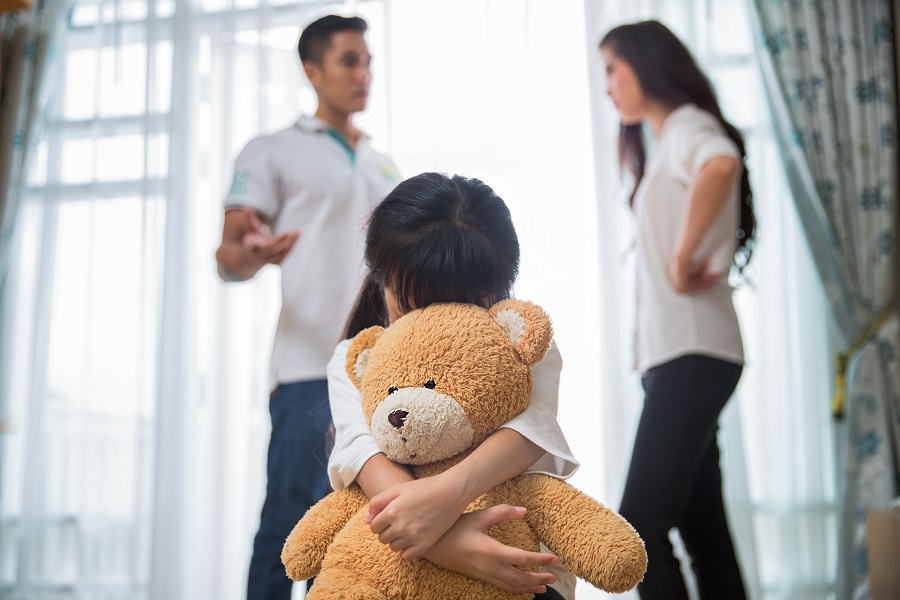Child visitation rights to the separated spouse are always contentious issues after a divorce is finalised and child custody care is confirmed. The separated parent would usually request for a schedule from the other parent who has the care and control of the children so that they can visit the children rightfully, according to the laws stipulated by the courts.
As the parents granted care and control of the children, you have to recognise the importance of granting visitation right to your ex-spouse as it is extremely critical for your children to continue a loving and nurturing relationship with the other parent.
There are too many children suffering from various mental disorders, negative self-image and negative self-worth in today’s world that is due to parental alienation from divorce cases that specialists and experts in the field are taking a serious look at how they can help these children to overcome the problems. Parental alienation can be so subtle that the parent doing it may not even realise that their children are affected by their speech or behaviours.
What exactly is parental alienation? It is loosely defined as the “brainwashing” of children by one parent to defame the other parent in an effort to undermine and interfere with the children’s relationship with that parent. This is often a result of the parent’s inability to separate the couple’s conflict with the needs of the children.
There are basically three type of parental alienation, namely the Naïve Alienator, the Active Alienator and the Obsessed Alienator. Every type affects the children in some ways, with the obsessed alienator giving outright distress to the children.
The Naïve Alienator is a parent who recognised the benefits of letting the children interact with the ex-spouse and is usually open to negotiation about visitation rights. This parent is also someone who will work with his or her ex-spouse to find the most suitable time frame for the visitation to take place. Same time, this parent is concerned about the wellbeing of the children and makes sure that he or she does not bad mouth the other parent in the presence of the children. Nonetheless, the naïve alienator will sometimes say things that create a mild form of alienation. Statements such as “Tell your father to buy you that iPad; he earns more money than I can ever spend” can signal to your children that you are not totally agreeable for them to interact with the other parent. This can lead to mild confusion and might cause the children to develop anxiety or fear of separation.
The Active Alienator is a parent who knows the benefits of having their children interact with the other parents in a healthy and warm relationship. What they cannot cope with is their own emotions. The Active Alienator will generally be a parent who would lash out or have an outburst against the other parent if something triggers their pain, bitterness or frustration. They might say statements like “Do not tell your father about the new job and the higher salary I have. That nasty man will take a cut out of our maintenance fees and leave us high and dry!” Usually, the Active Alienator will feel guilty later on and reflect that the outburst was uncalled for and would try to make things up with the children. Such mixed behaviours will confuse the children and make them anxious whenever visitation comes around. It might also lead to feelings of guilt towards one parent when they are out with the other parent.
The Obsessed Alienator takes a step further and outright denies the visitation rights of the separated parent. He or she will take steps to ensure that the children have no chance to see the separated parent. You can even say that this parent is a parent with a cause – a cause to totally erase the presence of the separated parent from the life of their children. This parent will go all out to bad mouth the other parent, putting the blame on the other parent for everything bad that happened, including the dissolution of the marriage. They work to make the children hate or fear the other parent so that the children would not want to see the other parent. Sometimes, the parent might go to the point of lying to the other parent that the children do not want to see him or her. Statements such as “Your father is a miserable loser; he is now in love with another woman. He does not love us anymore,” damage the children extensively as they tend to believe the parent who is left behind in their lives. With such wrong beliefs, the children grow up feeling less than complete and it might cause commitment issues in their adult lives.
Children who are alienated from one of their parent displayed a variety of problems over their lifetime, from the time they are being alienated all the way to their adult life. Parental alienation has long lasting negative effects on the children and it should be avoided to protect the children.
Some of the symptoms of parental alienation are anger, delinquent behaviours, loss of self-confidence and self-esteem, clinging or separation anxiety, fears and phobias, depression, suicidal ideation, sleeping and eating disorders, drug abuse and self-destructive behaviours, anxiety or panic attacks, poor peer relationship and excessive sense of guilt. All these symptoms may not be displayed together but some form of these symptoms, either mild or serious, will be seen in children with parental alienation.
These symptoms will damage your children’s self-esteem and confidence, leading to bigger problems when they grow up. It was found in studies conducted that children who experience parental alienation grow up to be adults who have commitment issues, drug abuse problems and general delinquent behaviours. They are more prone to crimes and less inclined to do well in school. They are also found to be more often unemployed and face their own problems with their nuclear family.
Any form of parental alienation is detrimental to your children and should be avoided at all cost. If you are facing issues with your ex-spouse over parental alienation, speak to your divorce lawyer to see if he or she is able to appeal to the courts for help. If you are the parent who has unwittingly alienate your children from your ex-spouse, take positive actions today to stop it. If necessary, engage a therapist to help your children get over the issues and set things right again.













